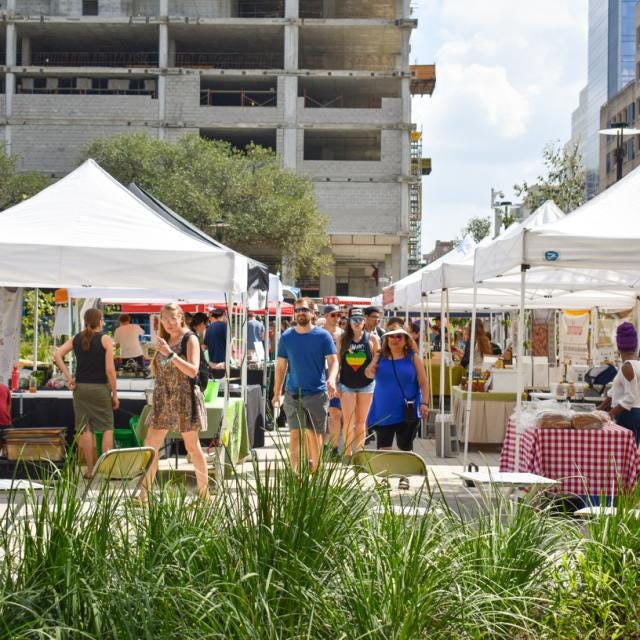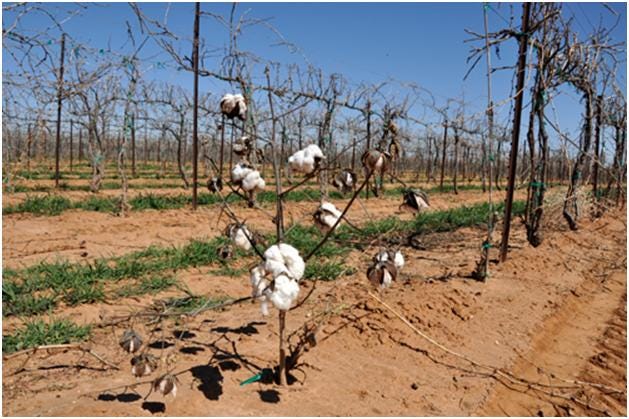Farmers Markets in Texas
An epic tale of the Hightower Legacy
Farmers markets are ubiquitous and, now are a permanent part of the food landscape. But it wasn’t also so. This pleasing institution, which seems so home-made and simple, wasn’t easy to establish. Plenty of people considered farmers markets old-fashioned and even a silly idea. Some newspaper editors in Dallas thought farmers markets were a socialist abomination.
“If people wanted farmers markets, the free market would have created them. This is nonsense. This is governmental intrusion by Hightower.”
The above was from an editorial in the Dallas Morning News in 1982 when Hightower was running for Commissioner of the Texas Department of Agriculture.
A known populist and supporter of family farms, Hightower advocated a shift of focus for the TDA. He thought a state agriculture agency should provide services for everyone involved in food—which is, well, everyone that eats, and that, folks, is pretty much all of us.
PHIT interviewed Hightower in 2022 over a number of issues. One segment focused on Farmers Markets, which was only one of the myriad issues that Hightower and the talented staff at the TDA creatively dealt with during the eight years of his tenure.
Hightower thought farmers markets made good economic sense. It provided markets for small farmers and fresh food for consumers.
“They're like fairs. They're so much fun. They usually had music, and it was a community event. There had been less and less of those available to everybody.”
“We were the catalyst to make it happen.”
“I campaigned on it. Once in office, we assembled a staff of people to go see if people really wanted farmers markets. Sure enough they did.
All over Texas, people and nonprofit organizations wanted farmers markets. Supermarkets wanted a farmers market on their parking lot because it would bring customers. Cities wanted farmers markets in their parks. It became enormously popular instantly. Farmers and consumers got together and they created it. We were the catalyst to make it happen.
“That, to me, is the essence of free enterprise. As I say, the word free in free enterprise is not an adjective, it's a verb. You're going to free up the enterprise of people. That was the role of government: not to own the market, not to run the market, but to make it available and be a catalyst for citizens to exercise their enterprise.”
“For the most part, groups formed cooperatives, and we helped them do that because that's not necessarily an easy process. It's a legal process… and then begins the difficult organizing process because you're getting sometimes cantankerous people together to try to create something that is rather wonderful. But it can have some un-wonderful moments in the organizing of it. We assembled a staff that knew how to organize coops and knew how to work with people. We would also work with cities, and we would work with the private companies that wanted to do it, the school boards that wanted this. And then we worked with farmers directly.”
TDA talked John Vlcek into leaving Tennessee to come and head the department. Vlcek, a pioneer in the field, had been creating farmers market throughout Tennessee.
“He did not want to leave Tennessee particularly and did not want to come to Texas particularly. But this was too enticing of an opportunity to have a state agency that was gonna put its weight behind supporting this concept, doing whatever it could do in terms of expertise and in terms of some financing. We didn't put money into the farmers market, we helped arrange some money.”
“Vlcek was extraordinarily talented as an organizer because that's what it is, the forming of farmers markets is organizing. You've got to get very diverse people: farmers, sometimes farm workers, church people in the community, all different kinds of churches, different ethnic groups, races, to come together, sit in a few meetings and come up with a concept that they can all agree on and then begin to make it happen. That takes some skill and patience.”
Farmers markets were welcomed by farmers for a number of reasons.
“Farmers saw cash in farmers markets. A guy who was out in Far West Texas, a two thousand acre cotton farm out there, who raised cotton and who had cattle. In East Texas, you raise hogs, and you got cotton. It's a monoculture or biculture. It's devastating to farmers because you're dependent on one or two crops, and that makes you dependent on a market that you have no control over and makes you depend on the monopolies to buy your product. But…Here was a market locally right where they lived.”
“Farming is a very lonely enterprise. Your next door neighbor in West Texas is three miles away. A lot of divorces happen because of this because it's you two, alone, for a long time, having to work full time and get along.”
“But…farmers markets were community. They enjoyed that atmosphere, fair-like spirit, meeting people, and talking to them about what they did. Most people don't know a lot about food—- How do you do this? Can I grow this? Well, you could.
“It's organizing! You go out there with an offer to people who are mainly ignored by the economy: you're too small, or you're just a worker, or you don't matter really, to say to them, ‘First of all you do matter and you could come together and form something that would actually put more money in your pocket.’”
“They were used to the Ag Establishment, which was headquartered at Texas A&M University and the Extension Service. Great models of what government should do in agriculture but that had become captured by corporate interests, and disdained small farmers, disdained farm workers. We were a challenge because we were getting a lot of publicity. Here's this little agency based in Austin that's doing all this stuff, and why can't the other agencies do something? They were getting pressure, and they didn't like that. Their reaction, rather than trying to outdo us, was to try to kill us.
“Anytime you stand up, particularly against the powers that be, they're gonna come down on you. You've got to be willing to sustain it. That was my role.”
We here at PHIT think of the TDA and their staff as a modern day Camelot, a tale of the knights of the Round Table. And we want to spread this story.
So subscribe and tell your friends.




Having been part of the co-op movement in Austin '70s, this story reminds me that our present state of chaos requires moving forward to working locally much more, as we remake our political landscape. Support for local farmers, media, education, environment, the arts, history, the young, the old, in the in betweens needs this kind of local spirit.